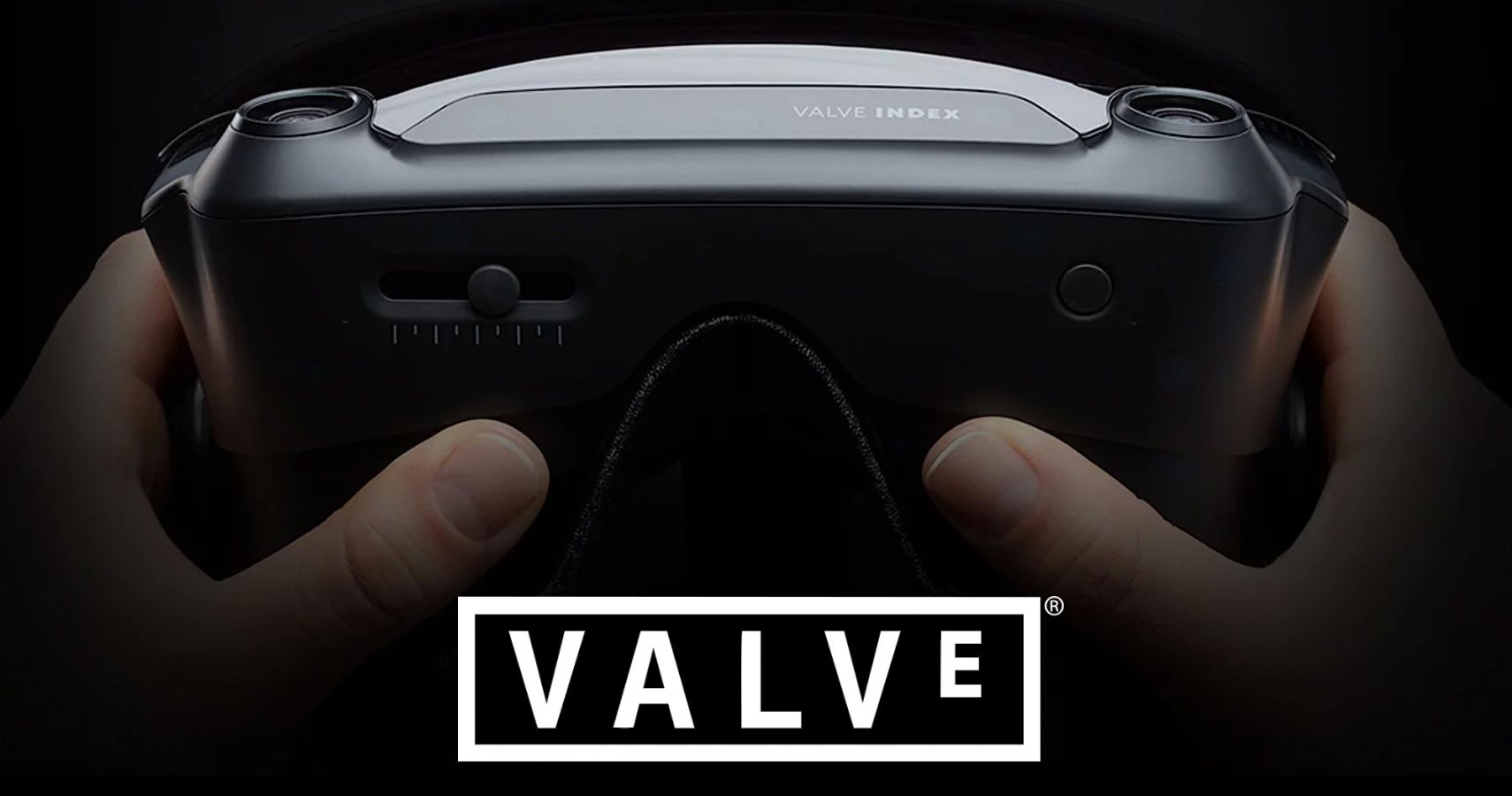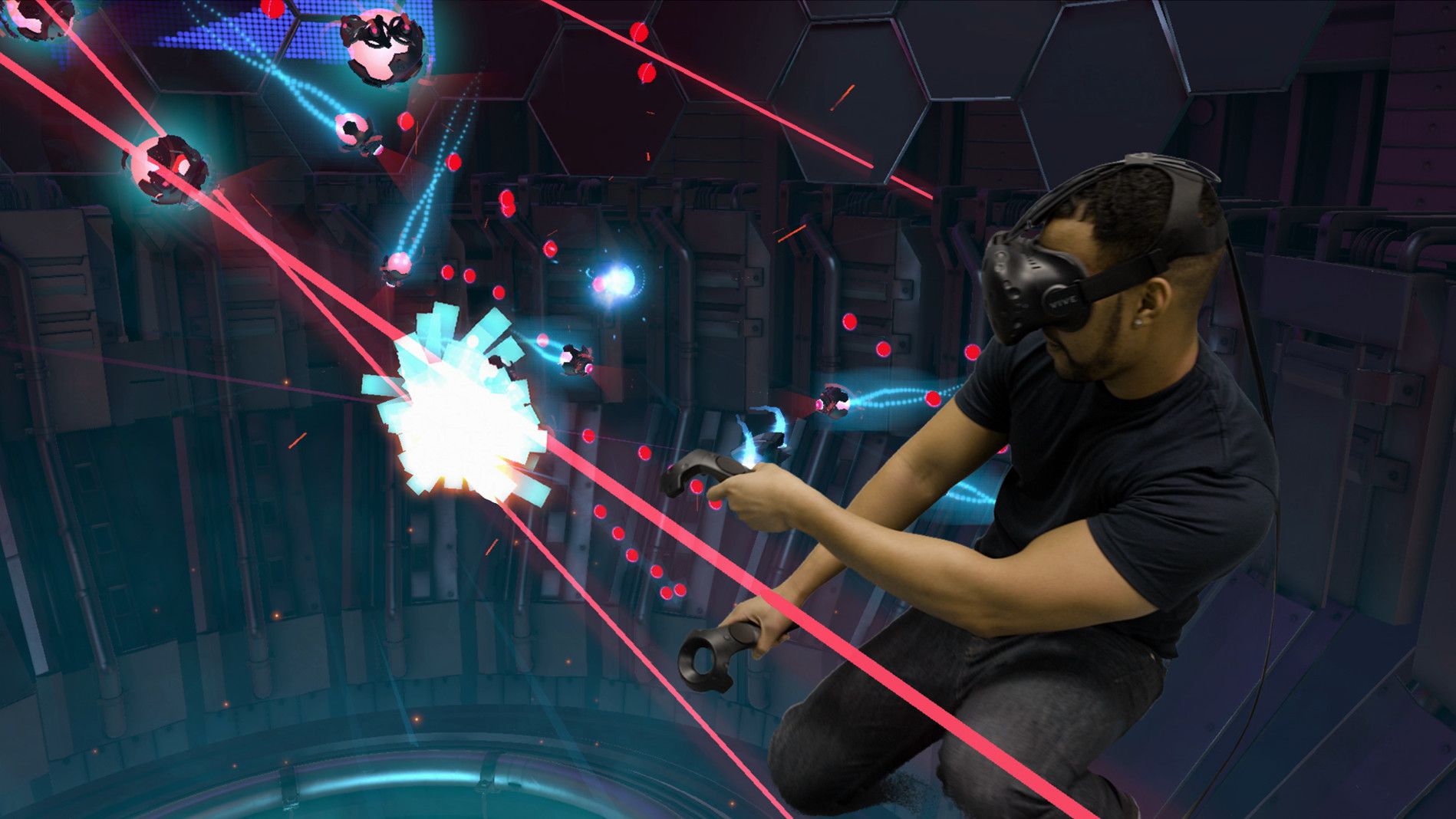Valve has recently unveiled its own VR headset called Valve Index.
It feels like it has been a little while since Valve has actually done anything meaningful. While it was rife with innovation and managed to churn out PC gaming hit after hit in the late '90s and early 2000s, it seemed relatively content to rest upon its laurels following the release of Dota 2 in 2013, which represents its last major release. Though Valve has since dabbled in other ventures — most notably its failed Steam machine hybrid console — it has been curiously quiet for some time. Now, all that is set to change as the company recently revealed Index, its first VR headset.
RELATED: Valve Lays Off 13 Employees, And More Contractors, Mostly On VR Development
The current generation of virtual reality gear has been around since late 2014 or so, and, while there have definitely been some major innovations in terms of design and functionality since then, consumers are by-and-large still waiting for the technology to enter more buyer-friendly price ranges. While VR gaming certainly has an appeal, prohibitive special requirements and fees make it far too niche for mainstream attention. Products like Sony’s PSVR may have challenged that notion, but the fact remains that virtual reality still rests on the fringes of the gaming space.
Valve could be looking to change that with Index. Company head Gabe Newell has been openly skeptical of the burgeoning VR industry in the past, and, in 2017, he stated that he thought it could still “turn out to be a complete failure.” It would seem, then, that this new headset would set out to correct many of the issues inherent in current VR tech while simultaneously making it more affordable than ever.
Despite his qualms, Newell’s organization has long been a supporter of VR gaming. They launched The Lab in 2016, which was an innovative tech demo for both the Steam service and curious Oculus Rift and HTC Vive owners. Steam has been selling virtual reality games since near the dawn of this new era in VR, and it also offers quite a robust digital space to explore — a variable improvement on Microsoft’s Cliff House demo.
RELATED: Half Life 3 Hoax Hypes Fans Up, Lets Fans Down
The Seattle-based gaming giant is no stranger to experimental products, of course; in November of 2105, it released its divisive Steam controller. While it proved to be a comprehensive new tool for gamers, it could only ever have appealed to a certain subset of PC players adamant about leaving their keyboards behind. That said, the venture proves that Valve is willing to take risks when it comes to their peripherals, and it puts Index in a bit of a strange position.
Unfortunately, aside from a vague release date of May 2019, we know very little about Valve’s Index. Valve released a teaser image showcasing a still of the headset a few days ago, but it’s tough to glean anything concrete from that. The device appears to have two front-facing cameras, which seems to indicate that, much like the upcoming Oculus Rift S, the headset won’t have to rely on external sensors to accurately track a user’s movements. It’s no secret that issues involving mobility and accurate roomscale have long plagued VR users, and this could go a long way in terms of curing much of what currently ails this type of gaming.
Only time will tell if what Valve is planning will have any legs. At the moment, we’re not even sure if the date included on the Index's promotional material refers to the release date or the time period around which interested fans may expect to hear more about the project.
Valve is infamous for announcing things prematurely, only to either drag out development or flat out shelve the idea. Right now, nobody can say for sure what Index will be or when we’ll be able to get out hands on it. Yet, if Valve can put its considerable might behind this product, it could turn out to be the next big thing in gaming.
READ NEXT: Shroud Is In Pain After Second Surgery, Has To Stop Streaming




